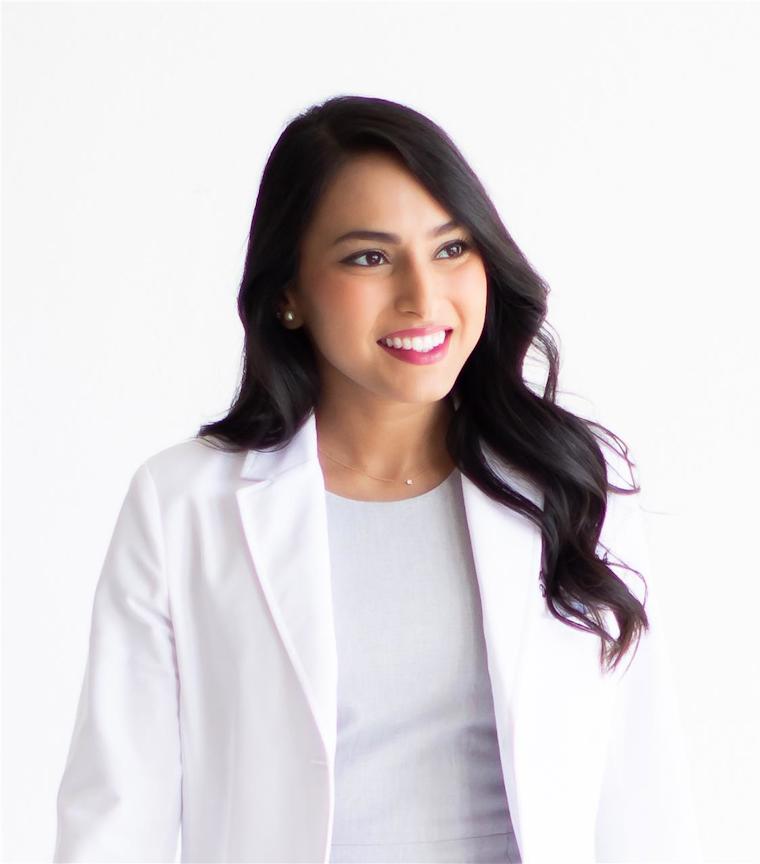This interview is one in a series of interviews with recipients of the 2020 ACGME Awards. The awardees join an outstanding group of previous honorees whose work and contributions to graduate medical education (GME) represent the best in the field. They will be honored at the upcoming ACGME Annual Educational Conference, taking place February 27-29 in San Diego, California.
David C. Leach Awardee Mariam Molani, MD, MBA is a PGY-3 resident in pathology at the University of Nebraska Medical Center.
ACGME: Why did you want to become a physician?
Molani: I think most doctors are intrinsically altruistic, and I feel no different. For as long as I can remember, I have loved to help others, and I feel nothing gives me more fulfillment than knowing that I have contributed to someone’s health and well-being.
ACGME: What, so far, has been the most rewarding part of your residency/fellowship?
Molani: I am a pathology resident, and the most rewarding part of my specialty is being able to look through a microscope and be able to render a diagnosis that will immediately affect the patient’s management. It is incredibly rewarding to have achieved the knowledge and expertise to identify hundreds of diseases and tumors, and to be able to give a patient a definite diagnosis so that they can finally get treatment for their disease. I love working with surgeons, radiologists, oncologists, and other members of the care team to discuss different aspects of the patient’s diagnosis and take a team-based approach to patient care.
ACGME: What has been the most challenging?
Molani: The most challenging part of pathology is the vast amount of information that the specialty encompasses. Not only are you required to have a knowledge of every organ system, and its associated anatomy, physiology, biochemistry, but you are responsible for identifying the histology of innumerable diseases, tumors, and conditions that may occur anywhere in the human body. In recent years, pathology has expanded to molecular and cytogenetic diagnostics as well, which has opened up a vast new world of information that directly influences patients, their treatment, management, and prognosis. While exciting things are on the horizon, keeping up with innovations in diagnostic medicine can be a challenge.
ACGME: What innovation/improvement did you implement in your program?
Molani: As a first-year resident, I pioneered the first pathology social media education platform at my program, which grew to be the second-largest educational social media account within the University of Nebraska medical and graduate medical education system. Currently, pathology is the least competitive medical specialty and has experienced a precipitous decline in applications from US medical graduates. Coupled with the systematic elimination of pathology from medical school education and limited options to rotate within the field during clinical years, it has become a specialty that few students and physicians can relate to.
With Twitter and Instagram accounts, I wanted to create a space where residents could share interesting cases, information about pathology, research endeavors, and innovations within our specialty. In the last decade, education has moved online. I wanted to give pathology residents a medium to share their diagnostic expertise, research, and accomplishments so others beyond the scope could understand the implications of a pathologist as a diagnostician and the part they play in patient care.
ACGME: What does it mean to you to receive this award?
Molani: This is one of the most meaningful honors I have ever received. I simply took initiative because I wanted to give pathology residents a medium to share their diagnostic expertise, research, and accomplishments with other specialties, residents, and students. I was absolutely stunned to receive this award--I never imagined my efforts to educate and promote my specialty on such a small scale would be recognized by the ACGME.
ACGME: What advice would you give to other residents/fellows who are looking to either replicate your improvement or implement an original idea of their own in their own program?
Molani: For others who might be interested in starting a social media education initiative at their institution, I say, just go for it! It’s free, easy to set up, and allows you instantaneous interaction with colleagues all over the world. You will create the opportunity to share your triumphs in patient care, research and innovations, projects and conferences, and even spark collaborations that will lead to incredible experiences and progress. So many people have innovative ideas but never take initiative to make them a reality. For any original idea you may have, write a written game plan, list the resources you will need, potential funding needs and sources, and why your idea is necessary and meaningful. You’ll be surprised at how many people will be happy to support you!

